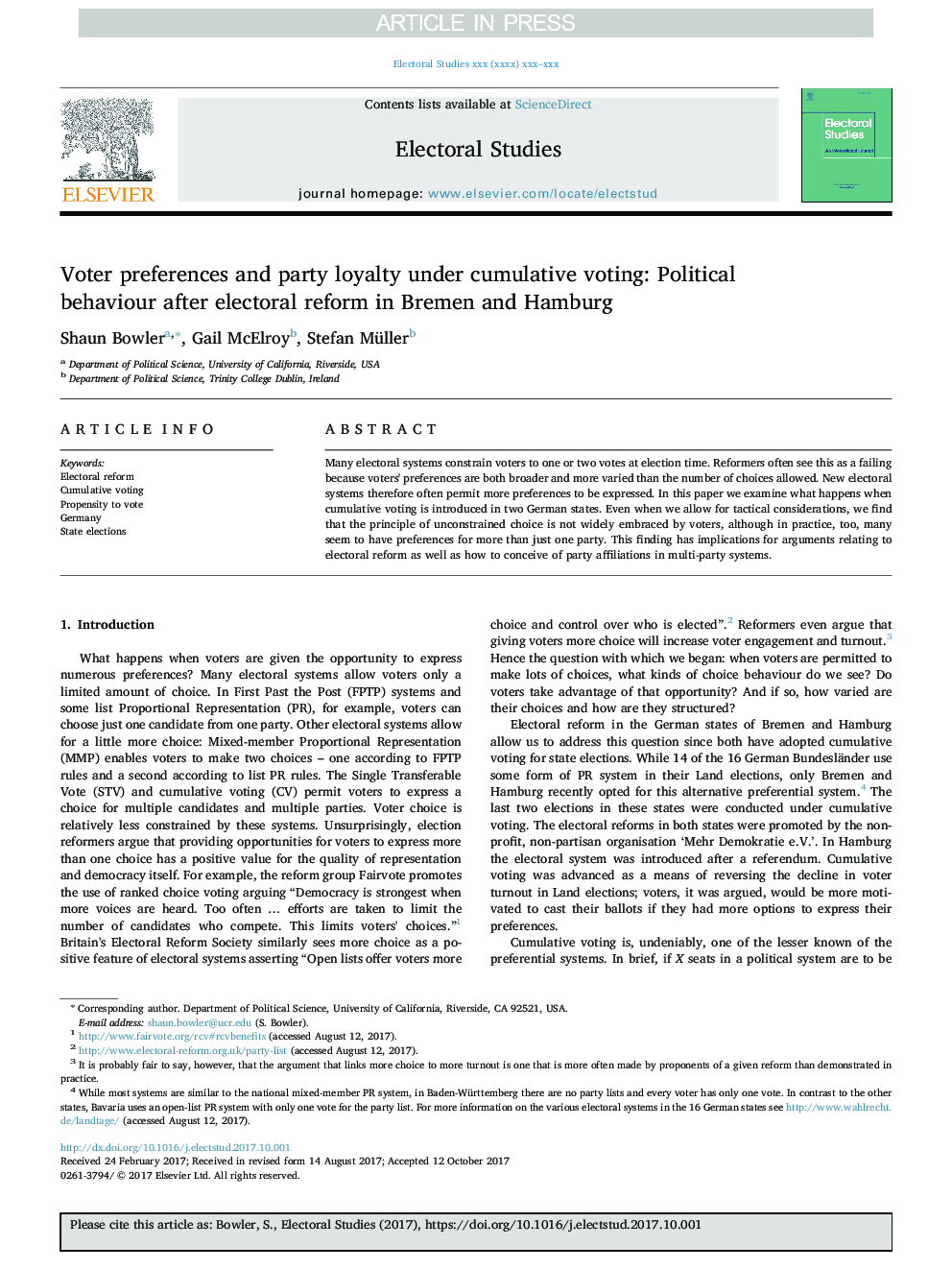| Article ID | Journal | Published Year | Pages | File Type |
|---|---|---|---|---|
| 7463348 | Electoral Studies | 2018 | 10 Pages |
Abstract
Many electoral systems constrain voters to one or two votes at election time. Reformers often see this as a failing because voters' preferences are both broader and more varied than the number of choices allowed. New electoral systems therefore often permit more preferences to be expressed. In this paper we examine what happens when cumulative voting is introduced in two German states. Even when we allow for tactical considerations, we find that the principle of unconstrained choice is not widely embraced by voters, although in practice, too, many seem to have preferences for more than just one party. This finding has implications for arguments relating to electoral reform as well as how to conceive of party affiliations in multi-party systems.
Related Topics
Social Sciences and Humanities
Social Sciences
Geography, Planning and Development
Authors
Shaun Bowler, Gail McElroy, Stefan Müller,
